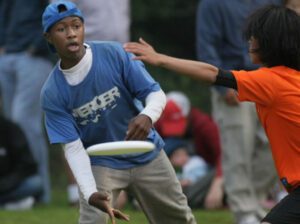In my experience, as both a coach and a player, I have been confronted with a few different schools of thought on what our approach should be as a hitter:
- Don’t swing at the first pitch! The idea, here, being that you’re able to get used to the pitcher by letting the first pitch go by. After that, you will be ready.
- Swing at the first pitch! You’ll see this a lot when you notice the pitcher is throwing a lot of first pitch strikes.
- If it’s strike, hit it!It doesn’t matter where the pitch is in the zone, if it’s a strike (or just close) you’re swinging.
As a hitter and as a coach, I want to maximize success in the box –– that’s my number one priority. I need to be putting myself and fellow hitters in the best position possible, and it all starts with our approach.
I’ve tried all three of these approaches in my career with some success, but also with some failures (as expected). When I got to college, I was presented with a new idea –– a new approach to hitting that I had never heard before.
- Swing at the first pitch? Not necessarily.
- Let the first pitch go? Not every time.
- Hit it if it’s a strike? Hardly.
Hitters need to understand what their strengths and weaknesses are in the box. I remember my coach asking me what pitch I hit the best, and me not being able to give her a straight answer –– I probably said something like how I liked inside and outside pitches and drew my imaginary zone in front of me with my hands. I remember her laughing (out of kindness) and I couldn’t help but feel embarrassed. Up to that point in my career, I had a lot of success at the plate without a lot of in-depth conversations about hitting. From that point on, my approach not only improved, but my ability as a hitter did as well.
Your approach should be based on your strengths, the situation and the pitcher’s tendencies/ability.
Remember that your strengths and weaknesses will morph, situations will vary, and not all pitchers are created equal.
-
You work on getting better every day, so your strengths and weaknesses will change as a result.
-
Does the plan change throughout the game, or season? It can, but again, not by much. Bunts, runners at second/third, hit and runs, sacs, etc. –– all of these would completely change your approach.
-
Pitchers have strengths and weaknesses just like the rest of us. Watch what she uses to get ahead, when she falls behind, and to get hitters out.
Here’s some additional points to keep in mind:
1. Make sure your coach is on the same page: Talk with your coach about your approach, that way he/she can better help and strategize with you. If your coach is telling you to let the first pitch go, and you swing because it’s in plan, you’re going to have an upset coach on your hands. Situations like this can be avoided if you simply…
2. Have a plan before you step into the box: Before we go up to bat, we need to already know what pitches we’re going to swing at. We DO NOT want to guess, or just ‘wing it’. We want to KNOW. This means you have to understand the situation, know your strengths, and study the pitcher –– where she tends to throw the ball, how she’s pitching to your teammates, etc.
3. Be willing to adjust…situations change: All pitchers are different. Your approach may have to be tweaked every now and then –– it’s OK. However, just remember that the more consistent we are, the better the chances of our success.
4. Ask for help: Of course, you know which pitches you are more confident in. Having confidence when hitting certain pitches is crucial, but it’s not everything. (For example: I was confident when I swung at pitches over my head, but that doesn’t mean I should have swung at them!) Ask your parents and coaches for their opinions on which zones you hit better, and more consistently. Pay attention to your tendencies at practice and keep the line of communication open.
CoachUp is the safest and easiest way to find a coach for personalized training. With our 100% money-back guarantee and vetted coaches, anyone can achieve their full athletic potential. Find your perfect coach today and become the athlete you want to be!
How useful was this post?
Click on a star to rate it!
Average rating 3 / 5. Vote count: 1
No votes so far! Be the first to rate this post.



